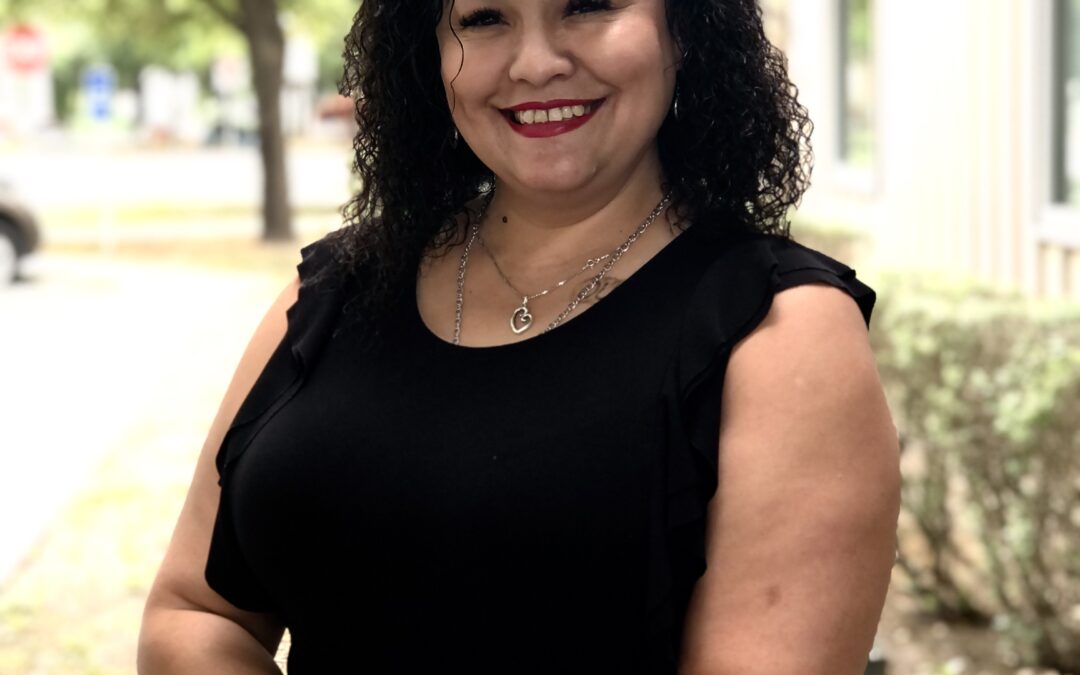17-Year Struggle Transforms into Inspiration as Galvan Coaches Women in Recovery
By Vicki Powers
Valarie Galvan never gave up to achieve sobriety, which makes her story even more compelling. She battled substance use disorder for 17 years. During this time, she completed multiple jail stays, entered treatment eight times, and received two probation sentences. Galvan said she was tired and ready for the cycle to end.
“I literally almost lost my mind and thought, ‘I can’t live like this anymore,’” Galvan said. “I was mentally drained, emotionally drained, and spiritually drained. I wanted something more, because I knew there was more to life. I just wasn’t allowing myself to live.”
Galvan also struggled with raising her children while she was in and out of treatment and jail. Her oldest daughter, (age 24), was raised by her parents.
“Out of my three children, my son (age nine) is the one that’s pretty much had a mother,” Galvan said. “For my two older daughters, I was there, but I wasn’t present.”
One memory that breaks Galvan’s heart is a field trip she volunteered to attend with her daughter, now 17. The school wouldn’t allow her to go because of her probation and felony.
Connecting with a recovery coach
In 2019, Galvan’s probation officer suggested that she meet Lisa Rizo, a recovery coach with Houston Recovery Center. She could have denied the offer and kept going, but Galvan said she was willing to take the suggestion and move forward, because she wanted the support. Galvan didn’t even know probation had a recovery coach.
It was important to Galvan that the recovery coach understood her and experienced what she had been through—walked the walk. She posed the question to the probation officer: “Does she understand?” The officer said he thought they would connect.
“I realized when I met her the only difference between me and her is that she had a little bit more (sobriety) than me,” Galvan remarked. “And that’s exactly what I tell ladies that I work with today.”
Galvan remembers joking with Rizo and saying she would take the recovery coach class and this would be her office! Rizo worked with Galvan for 18 months while she was on probation. Galvan completed monthly check-ins with Rizo to share how she was doing, struggles and all.
“Lisa would always tell me how proud she was of me and to keep going,” Galvan said. “She would ask me questions, and at the end of the conversation, I’d be asking my own questions.”
Galvan was 40 when she achieved sobriety, and for her, the timing was exactly where she needed to be.
Making life changes
Galvan now works at Santa Maria for nearly two years. She helps the women transition from jail and walk them through treatment and transition into the community. Her own experience with probation and living at Santa Maria (twice) helps her guide the women on their own successful path.
How has her life changed? Galvan said she’s learned to listen. She’s also learned to be more optimistic than she already was – that everything is going to be okay. Even though it may be one bad day, it will get better.
Today, Galvan is most proud of her perseverance, her determination to keep going, and her optimism.
“I always have a smile on my face, regardless, because I know at the end of the day it’s going to work out,” Galvan remarked. “Even if I don’t see it, it’s going to work itself out.”
Taking next steps
At a year sober, Galvan took her recovery course training and was employed for 11 months at an organization. But since she was still on probation, she found out it was a conflict of interest to work with the women. She went to Harris County to ask for her probation to be terminated so she could work with women on probation. That opportunity had been taken off the table for her, but she continued to do everything required, and the judge terminated it a year early.
“I literally hit the ground running,” Galvan said. “When I got sober, I knew I wanted to help other people and be that beacon of light. And so far, I have!”
She continues to learn and train in new areas of recovery. Galvan has earned Peer Recovery Support Specialist certification as well as Mental Health Peer Specialist certification. Her next step, in a few months, is earning Peer Support Supervisor Training.
Galvan also was approved to volunteer as a chaperone for her son’s upcoming field trip, something she couldn’t do with her daughter.
“It means so much to me, because I remember feeling disappointed that I couldn’t get approved for my daughter’s field trip,” Galvan said. “Recovery has done a lot, and there are a lot of good things happening. It just takes time.”
